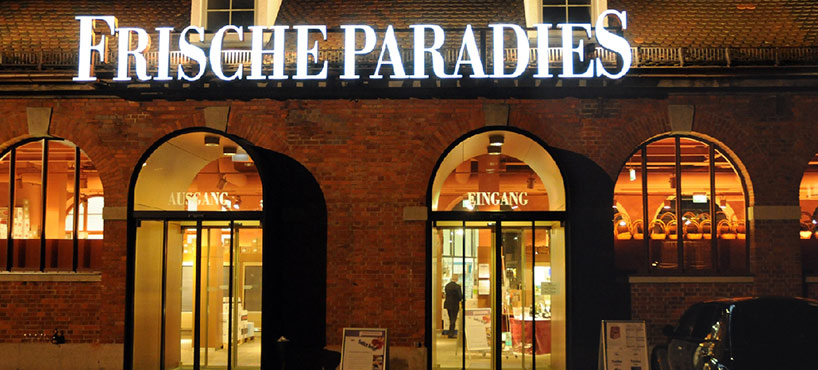Small and beautiful:
Our Hemp Pouch
The Landpack Hemp Pouch - the most sustainable thermal pouch for shipping chilled or frozen food.
Landpack® Hemp Pouch
- Fully compostable insulated bag made of hemp, no synthetic ‘stuff’ fibres
- Compostable wrapping, 100 % natural product
- The best solution for mixed carts and small volumes
- Insulation & shock absorption
- Cost-effective
- Premium quality, great touch, unique look
- Individually printable
- For frozen, cool and ambient requirements
- High-quality virgin fibre – European origin
- As a 100 % natural material, almost completely exempt from disposal costs via the German Duales System
Exemplary

FAQs
The Landpack pouch is particularly suitable for mixed baskets. The chilled products are placed in the pouch, which is then placed together with non-chilled products in an outer carton.
The Landpack pouch has no flap. It is best closed with adhesive tape. If there is only a small amount of goods in the bag, it can also be folded down.
We use commercial hemp from France, the Netherlands and Romania.
We will be happy to provide a compliance declaration if required.
Our hemp mats are wrapped with a compostable material made of polylactide (PLA) by default. If required and a purchase quantity of at least 10,000 pouches/year, the hemp mats can be wrapped with a film or moisture-resistant paper.
Many of our customers use our packaging repeatedly and carry out a visual inspection and surface cleaning. The latter works better if the compostable PLA wrapping is replaced by a film. The mats can then be wiped, disinfected, and reused.
Our hemp packaging is made from different varieties of hemp. These are only grown by certified hemp farmers. The crops are strictly regulated and are regularly tested to ensure that the THC content is below 0.2 %. Such a low THC level has no intoxicating effect whatsoever.
No chemicals are used in the cultivation of hemp. The hemp is processed in its natural state. No flame retardants or preservatives are used producing the insulating fleece. Also, in contrast to other processing techniques, Landpack expressly does not use any supporting fibres made of plastic (thermal bonding). Although thermal bonding has advantages, the plastic fibres can no longer be separated from the natural fibres. Disposal in organic waste would then not be allowed. Our pure hemp fleeces can be disposed of in organic waste without any problems and decomposes in home compost.
- The cooling performance depends on the outside temperature, the number of cooling elements, the temperature of the goods, internal capacity and packing method. It is therefore difficult to make a general statement.
- At an outside temperature of 30 °C, for example, the Landpack pouch can maintain a temperature of 0 – 8 °C for 48 hours.
Hemp fibres can absorb up to 80 % moisture of their own mass. The moisture that typically occurs when chilled or frozen goods are shipped in the packaging is absorbed by the natural fibres and released back into the environment as soon as the packaging is opened. This effectively prevents the formation of wet spots or even puddles in the packaging, as usually occurs with plastic packaging. Products and their paper packaging are protected from damage caused by wetness and excessive humidity during transport.
- The hemp plant is very robust and not susceptible to pests. Moreover, it casts so much shade that the weeds around it don’t stand a chance. The effect: pesticides can be completely avoided.
- In addition, up to 97 % of the hemp plant can be used. Fibres, straw, and seeds also provide a valuable raw material for making clothing, food and medicines.
- Hemp also improves soil fertility.
The hemp plant has an exemplary environmental balance that is better than forestry: one hectare of industrial hemp can absorb 22 tonnes of CO2 / hectare. Since hemp can even be grown twice a year, the absorption doubles to 44 tonnes CO2/hectare. Per tonne of dry material harvested, hemp has stored 1.8 tonnes of CO2. The rapid growth of hemp (to 4 metres in 100 days) makes it one of the fastest and most efficient plants for absorbing CO2.
- The fleeces can be individually printed with your logo in black. Branding can additionally be placed on the outer carton.
- Customisation of the insulating fleeces in terms of dimensions is also possible but depend on the quantities needed.
Yes, a hassle-free shipping time of up to 48 hours using dry ice as a refrigerant is possible. Read more about frozen shipping here.
Our standard version of the Landpack pouch consisting of 100 % hemp fibres and a compostable non-woven wrapping made of polylactide (PLA) can be completely discarded in organic waste. The wrapping is certified according to DIN EN 13432 for industrial composting. Despite the Europe-wide standard for industrial composting, many waste management companies do not accept bioplastics in the organic waste bin (for reasons of misdirection, among others), even if the bioplastics – like PLA –consist of 100% renewable raw materials. However, the hemp mats can also be easily separated from the wrapping by hand and disposed of separately. Discarding the hemp mats in the organic waste bin creates biogas for decentralised electricity and heat supply, and the nutrients remain in the natural cycle through subsequent composting. Thus, disposal via the organic waste bin is the nicest way. Of course, complete disposal in the residual rubbish is also possible.
When the hemp mats are disposed of in organic waste, biogas is produced for decentralised electricity and heat supply, and the nutrients remain contained in the natural cycle. The mats can therefore end up in the rubbish with a clear conscience.
Nevertheless, there are various applications in the garden and household, like for the wintering of potted plants, as cushioning for pets or as a laptop bag.
The warehousing of the fleeces or bags is not subject to any special requirements. Our products can therefore be stored for several months under the same conditions as cardboard boxes. The ideal storage conditions are temperatures between 15 and 20 °C and an air humidity that does not exceed 50 %.
Hemp is used for building insulation and considered flame-retardant (protection class C).






